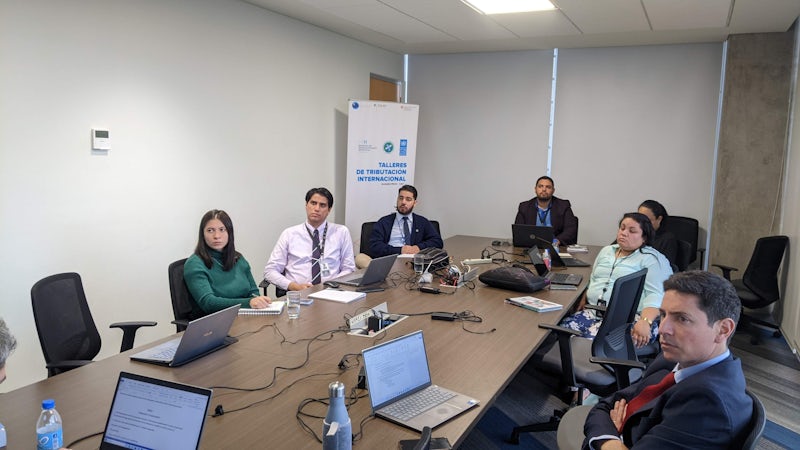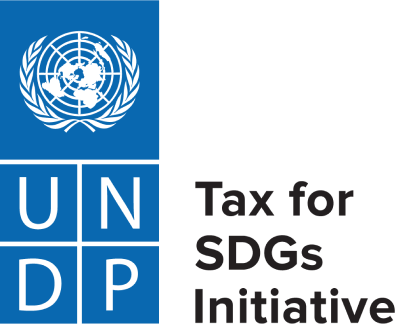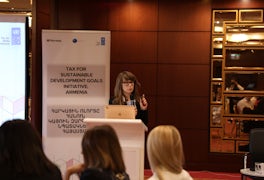Staff from the Ministry of Finance and the Revenue Administration Service (SAR) attended the training.
Tegucigalpa - The second training session on the fundamentals of international taxation and tax treaties to prevent double taxation took place from June 17 to 19.
During this session, government personnel from various ministries and state institutions expanded their knowledge with the help of a specialist in the field. This was supported by the Inter-American Center of Tax Administrations (CIAT) and the United Nations Development Programme (UNDP), which, through its Tax for SDGs Initiative, has been working to implement similar training activities in various countries where UNDP operates.
These training sessions aim to help Honduras develop a model of Double Taxation Agreements (DTA) that will enable it to negotiate effectively with other countries. The purpose of creating a DTA model is for nations to establish processes, protocols, and/or regulations that prevent companies from paying taxes twice on the same investment—both in the country of origin of the income (the country where the company resides) and in the country where the income is generated (source country). This is particularly relevant for Honduras considering the proposed changes in the Tax Justice Law, as the country currently lacks agreements to prevent international double taxation. It is both necessary and urgent to provide government officials with a comprehensive overview of international taxation, focusing on agreements and the fundamental role played by a framework of tax treaty policies.

Background
Currently, Honduras' Income Tax Law is based on a territorial principle, meaning that only income derived from the exploitation of assets or services rendered within Honduran territory is subject to tax. In contrast, income derived from the exploitation of assets or services outside the country is not taxed in Honduras. According to the SAR, changing the principle from territorial to global would prevent the diversion of profits and earnings by large companies to tax havens. It is estimated that between 2017 and 2023, approximately 57 billion lempiras (Honduras official currency) in taxes were not collected, which is why this reform has been introduced through the new Tax Code. Upon approval of the change in the income principle, 503 companies and individuals will begin to pay taxes on income received from abroad.
In a territorial income scenario, like the current one, foreign companies that invest in Honduras through subsidiaries pay income tax on the activities conducted within the country. However, when these companies repatriate the profits from their investments to their home countries, they must pay income tax on these profits again, without being able to deduct the taxes paid in Honduras. As a result, countries with a territorial income system (such as Honduras and most Central American countries) often establish reduced tax rates or exemptions for foreign companies. However, such exemptions or reduced rates can encourage tax evasion, thereby increasing fiscal expenditure, which means lower tax collection.
The Tax Justice Law currently under discussion in Honduras aims to transition from a territorial income system to a global income system. This shift makes it advisable for the country to begin negotiating double taxation agreements. This is crucial for promoting foreign investment and cross-border economic activities, as a clear and predictable tax environment reduces the tax burden on international income, fostering a freer flow of capital.

Capacity Building
It is essential for countries to understand the fundamental relationship between taxation and sustainable development—two interconnected areas that are crucial for the socioeconomic landscape of Honduras and the developing world.
In March, the first workshop of the series was held, where participants learned about specific issues related to international taxation and DTA. This workshop focused on developing a model Double Taxation Agreement (DTA) for Honduras, with the aim of establishing a general framework that facilitates effective negotiation with other countries. The final workshop will take place in the coming months and will enable officials to learn negotiation techniques for agreements, based on the model that will be developed.




